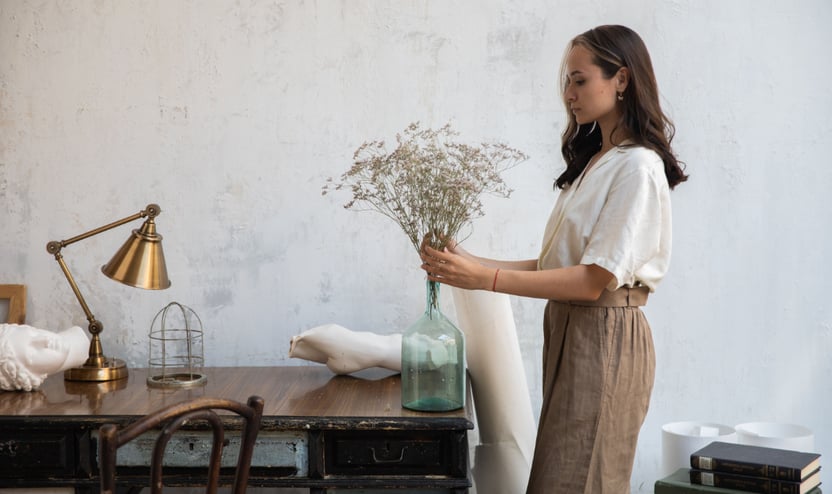DIY Home Staging vs. Professional Staging: Making the Right Choice
Many property owners and sellers are initially hesitant to invest in professional staging due to concerns about the expense. However, staging professionals often emphasize the potential return on investment, highlighting that the cost of staging can be justified through quicker sales, higher offers, and the ability to stand out in a competitive real estate market. Whether you're arranging furniture personally or seeking professional assistance, the ultimate goal remains the same: to make your home an irresistible proposition in today's competitive real estate market.
DIY HOME STAGINGPROFESSIONAL PROPERTY STAGING
Sara Cook
8/22/20232 min read
In the quest to sell your home in the competitive real estate market, presentation is key. As you contemplate how to best showcase your property's potential, you're likely faced with the age-old question: Can I stage my home myself, or is professional staging truly necessary? Let's dive into the pros and cons of both approaches to help you make an informed decision.
The Case for DIY Home Staging
Pros:
Cost Savings: DIY staging can be cost-effective, especially if you're working with a tight budget. You have control over how much you spend on decor, furnishings, and enhancements.
Flexibility: You can stage at your own pace and make adjustments as needed. This is particularly helpful if you're juggling other commitments.
Cons:
Limited Expertise: Staging requires a deep understanding of design principles, spatial arrangements, and buyer psychology. DIY efforts might lack the finesse needed to create a polished and attractive presentation.
Limited Resources: While you can control how much you want to spend on decor and furnishing, you're likely to be confined to what is available at that time in high-street furniture stores or brands. You could be limited not only by furnishing choices but also by high street prices leading to inconsistent styles and unbalanced compositions.
Time-Consuming: DIY staging demands time and effort. From sourcing decor and organising delivery to arranging furniture, the process can become overwhelming, especially if you're new to staging. Homeowners might spend more time searching for suitable pieces in their price range, potentially delaying the staging process. This can be a challenge, especially if the property needs to be listed quickly.
Emotional Attachment: It can be challenging to view your home objectively. Any emotional attachment might lead to choices that don't resonate with potential buyers.
The Value of Professional Staging
Pros:
Expertise: Professional stagers possess the knowledge and experience, not to mention, often trade access to better furniture options and pricing to transform your home effectively. They understand how to highlight its strengths while downplaying weaknesses.
Neutral Perspective: A professional stager offers an impartial viewpoint, allowing them to create a space that appeals to a broader audience, making the property universally appealing.
Time Efficiency: Staging professionals streamline the process, ensuring your home is market-ready in a shorter span of time. After all, it will not be their first rodeo in home staging!
Increased Appeal: Professional staging often leads to higher buyer interest and quicker sales, potentially justifying the investment.
Cons:
Cost Consideration: Professional staging comes with a price tag, usually starting from around a couple of thousand pounds for a one-bedroom property. However, the return on investment in terms of quicker sales and potentially higher offers will offset this cost.
Coordination: Coordinating with a staging professional requires communication and collaboration. You need to be prepared to lose the ability to have a say during the staging process and to surrender fully to the professionals to do what they're paid to do.
Making the Right Choice
Ultimately, the decision between DIY home staging and professional staging depends on your goals, budget, and resources. If you have a strong design sense, time to spare, and the willingness to research staging best practices, DIY staging could be a viable option. However, if you're seeking a polished presentation that resonates with a wider audience, professional staging offers expertise, objectivity, and a streamlined process.
Whichever path you choose, remember that successful staging is about creating an environment that allows potential buyers to envision themselves in the space. Whether you're arranging furniture personally or seeking professional assistance, the ultimate goal remains the same: to make your home an irresistible proposition in today's competitive real estate market.


